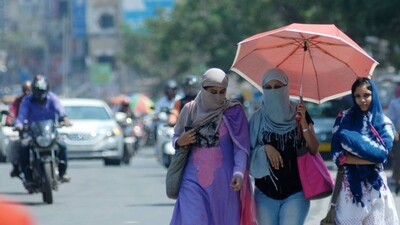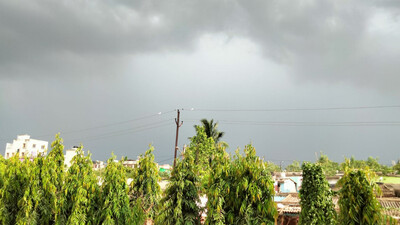Britain has committed to providing 280 million pounds aid to India until 2015, a figure that has come under trenchant criticism at a time when cuts threaten several public services at home.
Reports that hundreds of millions of pounds of British aid have been allegedly squandered on schools in India have provoked another round of angry responses from readers and others, including members of the coalition government.
According to a report in the Daily Mail, Britain has provided 388 million pounds to the Indian education system over the past eight years, but an investigation reportedly has revealed that much of the money has been wasted and that standards of reading, writing and arithmetic have dropped.
Reacting to the report, Conservative Tory MP James Clappison said: "This casts doubt on the efficacy of the role of UK aid in India. Perhaps that money should be spent at home or sent to poorer countries. Some of these countries can help themselves more."
Earlier reports had claimed that the millions of pounds in British aid had been lost to corruption in the Sarva Shiksha Abhiyan that aims to provide free education to those aged six to 14.
Defending the aid on education in India, a spokesman from the Department for International Development said: "Since 2003 the UK has helped more than two million children attend school in India. We are working hard to get more into school and raise teaching standards, giving the poorest the chance to lift themselves out of poverty".
He added: "All British aid is now subject to rigorous, independent evaluation which will help to drive up the standard and quality of education in India."
A comprehensive review of British aid says: "India`s tremendous economic growth over the last decade has lifted people out of poverty and generated the resources to pay for some of the world`s largest and most successful anti-poverty programmes".
One example, it says, is the primary education scheme that has got 60 million children into school since 2003.
It adds: "But the scale of need in India`s poorer states - each of them larger than most African countries - remains huge. The state of Bihar alone has double the number of people living in extreme poverty than Ethiopia. Madhya Pradesh has the same population as Britain but an economy 100 times smaller and 50 times more mothers die there every year".
The Department for International Development is discussing a new approach with the Government of India, one focused much more tightly on India`s poorest states and poorest people.
It will focus aid in Bihar, Madhya Pradesh and Orissa.
"We will share expertise, support innovation and build skills to help India`s public and private resource go further", the review document says.
Britain`s `top priorities` in India will be ensuring the poorest girls and women get quality schooling, healthcare and nutrition; and supporting the private sector to deliver jobs, products, infrastructure and basic services in areas which desperately need them.












